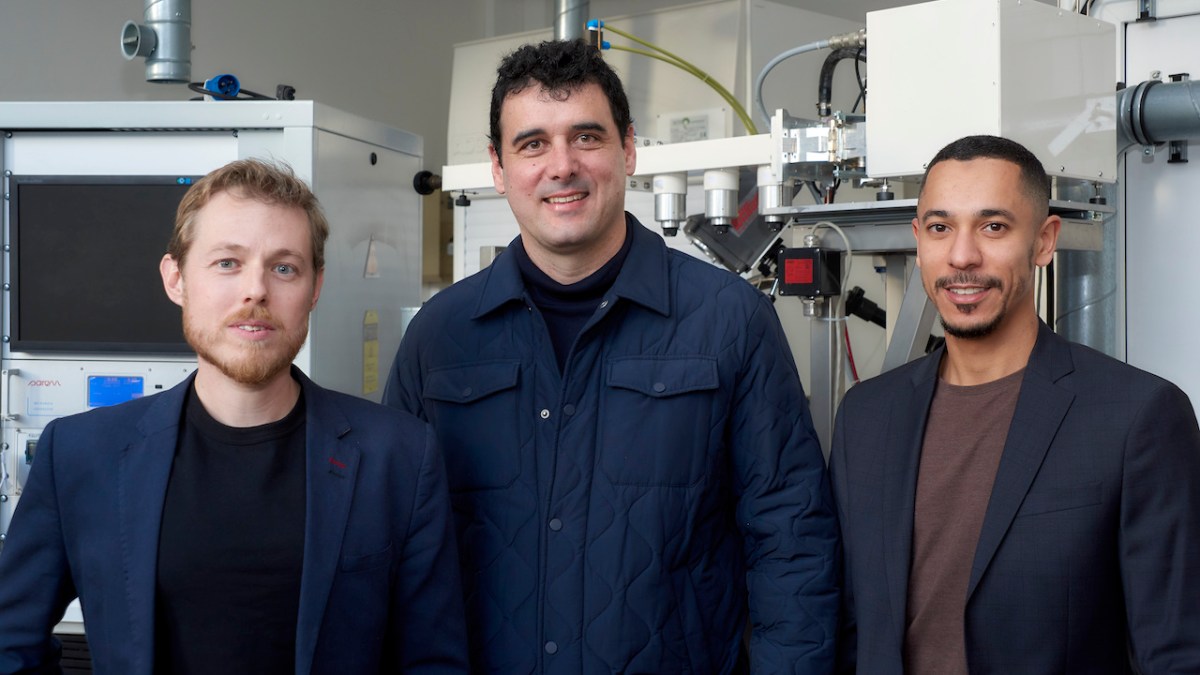With an influx of funding into deep tech to tackle global challenges like climate change, a new wave of PhD entrepreneurs from Europe’s top universities and research labs are transforming their research into successful companies.
One noteworthy example is Diamfab, a French startup established in 2019 by co-founders CEO Gauthier Chicot and CTO Khaled Driche, both PhD holders in nanoelectronics and esteemed researchers in semiconducting diamond. They transitioned from Institut Néel, a CNRS laboratory, with two patented technologies.
Since their inception, Diamfab has expanded its patent portfolio, welcomed a third co-founder Ivan Llaurado as the chief revenue officer, and secured an €8.7 million funding round from investors like Asterion Ventures, French Tech Seed, Kreaxi, Better Angle, Hello Tomorrow, and Grenoble Alpes Métropole.
The changing landscape around semiconducting diamonds is driving this interest as these materials shift from a theoretical concept to a practical industrial application.“Diamonds are no longer a laboratory subject: They have become an industrial reality, with startups, with manufacturers interested in this field, and with the partners we have around us,” Chicot shared with TechCrunch.
Transitioning from Lab to Industry
While silicon remains a dominant semiconductor due to its cost-effectiveness, alternatives like diamond are emerging to potentially surpass its capabilities. Diamfab envisions a future where diamond-based components will require less material than silicon carbide, paving the way for cost competitiveness.
The startup aims to produce more efficient semiconductors with a reduced carbon footprint, supporting the electrification of society, starting with transportation. Beyond power electronics, diamond wafers hold promise for applications in sectors like space tech, nuclear batteries, and quantum computing.
Building on 30 years of R&D at Institut Néel, Diamfab seeks to bring this cutting-edge technology out of the lab to revolutionize industries. Winning the Jury’s Grand Prize of i-Lab in 2019 provided validation and support for their mission.
Promise of Diamond Technology
Backed by Bpifrance and other investors, Diamfab’s diamond wafers represent a high-value alternative to silicon. Amidst efforts to decarbonize industries, diamond technology could play a pivotal role in fostering Europe’s technological independence.
By synthesizing diamonds from methane, Diamfab aims to reduce its carbon footprint while exploring future opportunities with biomethane. The startup is investing in scaling up its technology over the next five years to support mass production.
Despite challenges in securing VC funding due to longer gestation periods, Chicot managed to secure €8.7 million for Diamfab to propel its pre-industrialization efforts.
Grenoble’s Tech Ecosystem
Grenoble emerges as a hub for deep tech innovation, bolstered by investments in companies like Verkor and Renaissance Fusion. Partnerships with established players like CEA, Schneider Electric, Soitec, and STMicroelectronics are vital for Diamfab’s growth.
With increased focus on semiconductor production in Europe, Diamfab aims to contribute to the region’s tech landscape by realizing the full potential of diamond in semiconductor technology.


